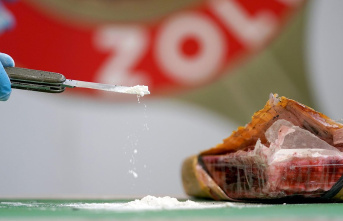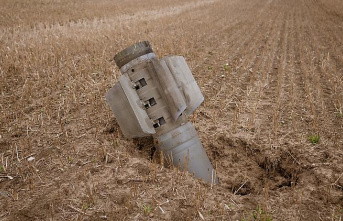The rising prices are here to stay. However, the price slide on the stock market now offers opportunities to invest your money sensibly and more cheaply than before.
The shock to oil, gas and other commodities catapults the cost of living sky-high. However, the central banks had been mixing the inflation cocktail since the financial crisis of 2008, when they created enormous inflationary potential with negative interest rates and purchase programs.
For a long time, only the prices of financial assets rose, but from the beginning of 2020, corona-related bottlenecks and the partly state-financed demand drove inflation up faster and faster. In the meantime, a dangerous stagflation is threatening: a stagnating economy with high inflation.
Not only consumers, but also savers suffer from inflation: "With interest rates close to zero percent, seven percent inflation means that 3,500 euros of the 50,000 euros in the account are gone after 12 months," says Stefan Risse, author of the book "Inflation is coming ", clear. Investments with potential inflation protection are therefore in demand.
For inflation-linked bonds, the face value, which is the amount that the issuer of the bond owes the buyer (creditor) of the bond, is usually linked to the consumer price index. This protects capital and interest against inflation. Numerous funds and ETFs rely on these papers. But be careful: If the yield level rises, they too will suffer price losses. In addition, they offer real yields, but they are currently negative: the inflation-indexed federal bond maturing in 2033 is yielding minus 1.5 percent.
The commodity index S
Although commodities are considered volatile, a quick relaxation is unlikely. Tilmann Galler, market strategist at JP Morgan Asset Management, says: "Even the scenario with the most conservative demand growth assumptions offers strong support for commodity prices in the coming years."
Gold has a special position, says Funda Sertkaya, commodity expert and managing director at precious metals trader Ophirum: "Gold is in demand as a crisis currency and as a protection against inflation, especially if the US Federal Reserve is currently raising interest rates less than expected or if inflation continues to rise". In addition to physical gold, investors can primarily invest in funds and certificates, some of which are physically deposited. Shares are a classic tangible asset: Shareholders participate when companies adjust their prices to reflect higher costs. Mine operators in particular often benefit disproportionately from higher raw material prices. But beware: All stocks are subject to fluctuations and are suffering from the recent sharp increase in risk aversion.
The prices for concrete gold have been climbing to new records for years. But now the mix of rising interest rates and a slowdown in the economy and consumer sentiment could dampen the rise. After the rally of the past few years, that would be more than normal and healthy at the same time. "Crypto currencies, on the other hand, have so far failed completely as a protection against inflation; on the contrary, they are falling just as heavily as speculative technology stocks," says Jürgen Molnar from broker RoboMarkets. While inflation has been rising over the past few months, Bitcoin and Ethereum are on a fast track down together. The discussions about the high energy consumption and regulatory interventions in the EU have also damaged the reputation of Bitcoin
Investors therefore have material at hand as a way of compensating for inflation. High-dividend stocks deliver a constant payout, and there are now many of them in the DAX or EuroStoxx. But the derivatives market also has exciting structures ready. Many bonus certificates or discount papers now provide potential returns of 10 percent or more, even if the underlying index, such as the DAX or Nasdaq, doesn't even move. The investor calls this a sideways return. It's particularly high when fear reigns - and there's plenty of that everywhere right now.
Daniel Saurenz operates the Feingold Research stock exchange portal.
This article does not constitute a recommendation to buy or sell individual shares or other financial products. No liability is assumed for the correctness of the data.
6












